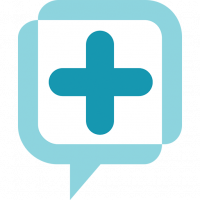Clients using our Heart Health Assessment can now easily cross-market using self-reported comorbidities uncovered by the assessment. This means you can message our HRA users about relevant but secondary health topics that are related to the assessment results using our built-in email system.
It is a powerful way to extend engagement with health care consumers in a meaningful way. In other words, continue to talk to them about legitimate health concerns. After all, that’s what they really want from you.
What are “self-reported comorbidities?”
Wikipedia defines a comorbidity as “a condition existing simultaneously but independently with another condition or a related medical condition.”
For example, our Heart Health Assessment asks a series of questions to calculate biological heart age and risk of developing cardiovascular disease. Some of the questions ask about health factors that can be considered comorbidities. I.e, they relate to heart disease but are also important on their own.
- Body mass index = 30.0-30.9
- Body mass index = 40+
- Current smokers
- Current cardiovascular disease
- Diabetes type 1
- Diabetes type 2
- Blood pressure > 140/90
This data is self-reported, not pulled from an EMR. And, users have already “opted-in” for your communications by completing the assessment. Because of these things, you can safely cross-market to them about these important health topics.
What do you mean by “easily cross-market?”
To “cross-market” in this context means to connect the engagement around one health concern with engagement around other related health concerns. This gives the added benefits of cost savings and increased personalization. It is cheaper and more effective to continue the engagement you have established than trying to win a new one.
You can imagine that, regardless of risk result, if you knew a user had one of these conditions, it would be valuable to them and to the hospital to engage with each other around that topic. This is the type of consumerism that today’s health care consumers expect. They expect you to listen to what they are telling you, and to put your knowledge of them to good use. Please don’t disappoint them.
We have made it easy for our hospital clients to create & deliver up to 3 emails for each of the comorbidities using our included email system as part of a Follow-Up Plan. As always, all of the data collected in the assessment is available, so clients can create the same filters for use in their CRM or email automation tools. Ask us about this if you want to know more.
So, if this feature is popular, we will add it to our other assessments in the near future. Similarly, we are considering adding the ability to export lists of users per comorbidity, as well.
Let us know what you think of it, so your feedback can continue to shape this cool feature.
P.S. – Click here for a sneak peek at our next-gen assessment redesign.















 Thank you for your interest.
Thank you for your interest.